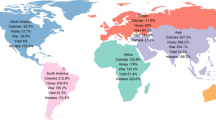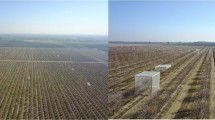Abstract
FROM the beekeeper's point of view, honey production is the main object of beekeeping ; but from the national point of view it is only a by-product. Both in peace and war, the chief contribution of beekeeping to the national economy is the provision of pollinators for crops such as fruit, clover and mustard. Except for this fact it is doubtful whether the allocation of 15-20 Ib. of sugar per annum to each colony could be justified, even though in an average season an average surplus of 30-35 Ib. of sugar (as 'honey-sugar') should be obtained over and above the 20-25 Ib. of honey which should be left in the hive in the autumn for the use of the bees during the non-productive months of the year. Recent estimates show there to be nearly 56,000 beekeepers, owning a total of about 430,000 colonies of bees, in England and Wales alone, but the allocation of some three or four thousand tons of sugar to them annually is a small price to pay for successful fruit and seed crops.
This is a preview of subscription content, access via your institution
Access options
Subscribe to this journal
Receive 51 print issues and online access
$199.00 per year
only $3.90 per issue
Buy this article
- Purchase on Springer Link
- Instant access to full article PDF
Prices may be subject to local taxes which are calculated during checkout
Similar content being viewed by others
References
Full accounts of the papers read will be published as Proceedings of the Association in the Annals of Applied Biology.
To be described in the Journal of Scientific Instruments.
Author information
Authors and Affiliations
Rights and permissions
About this article
Cite this article
BUTLER, C. THE HONEYBEE. Nature 150, 759–760 (1942). https://doi.org/10.1038/150759a0
Issue Date:
DOI: https://doi.org/10.1038/150759a0
Comments
By submitting a comment you agree to abide by our Terms and Community Guidelines. If you find something abusive or that does not comply with our terms or guidelines please flag it as inappropriate.



